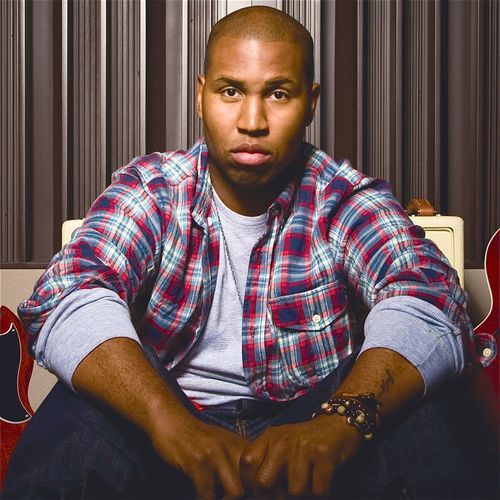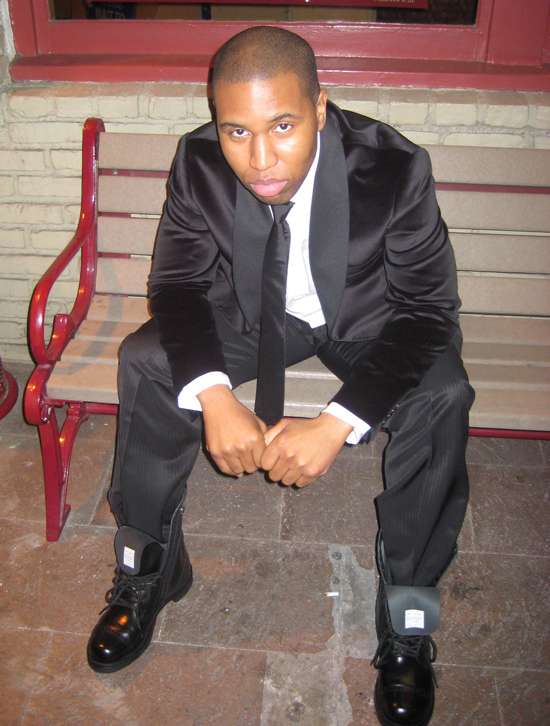Interview by Dwane Rich Words by DJ Gravy
In this day and age, being a star isn’t quite all it’s cracked up to be. However, being behind the scenes can sometimes be the best scene of all (and free of TMZ-like parasites). In the case of the music industry, getting publishing checks can be a lot more rewarding (and less dramatic) than being the headliner in the spotlight. If an artist with hit songs falls off, the writer behind the songs moves on to the next project, and while recognized in the industry, doesn’t need bodyguards and Escalades with tinted windows to go out for brunch! Meet the biggest new songwriter in the game, Claude Kelly.
Even at the tender age of 5, it was clear that Claude Kelly was destined for greatness. His organ playing in church filled the pews, put money in his very small sized pockets and had all the church ladies on smash, talking about what a prodigy this Jamerican youth from the East Village was…
Fast forward 15 years later, we find Mr. Kelly attending the highly-esteemed Berklee School of Music in Boston. From there, the young graduate had his mind set on becoming a major recording artist. After giving it a good run, (and collaborating with a bag of pop stars) he ended up writing for other artists, and it was in this seat that he really found his angle, and success most can only dream of.
Since his first writing gig in 2002, Claude has become the “it” factor in the biz, penning major hit songs like “My Life Would Suck Without You” (Kelly Clarkson), “Circus” (the title track on Britney’s last record) and practically the updated national anthem, “Party In The USA” (Miley Cyrus).
Fresh off the jet from London, where he was recipient of a songwriting award, Claude Kelly took a moment to speak with Large Up to give us some insight about what it takes to succeed in the biz, how his Jamaican background affects his craft, and his method of constructing songs in his head, opposed to the pen and pad. “If you have to write it down,” he says, “it’s not worth remembering!”
LU: How did writing a song for Japanese clothing line, Bathing Ape, and another for R&B singer, Frankie J, come about? And how did those jobs lead to the kind of projects you’re doing now?
CK: The song I wrote for Bathing Ape was completely by accident. It was the first song I ever placed so in a way its the most special. Working with Frankie J was a result of music I worked on with DJ Clue. I owe that connection to him. I then wrote a second song with Frankie J called “Daddy’s Little Girl’ that became a single on his Priceless album. Both of those experiences gave me the confidence I need to keep pushing, and perfecting my writing skills. They came at a vulnerable time for me. I was grinding and not seeing many results. Those experiences gave me the encouragement I needed to keep going. It was a sign that I was on the right track.
LU: Can you describe to the people who know the hit songs, but are unfamiliar with the process between the songwriter, producer and the artist, how that goes down?
CK: It’s actually quite simple. I am a songwriter or “topliner”. I write the melody and lyrics of the song. The producer creates the track/beat/ instrumentation that accompanies. Together you have a song. The artist, of course, records and performs the song. These jobs can be separate but in many instances, a person can do more than one. Many artists and producers are songwriters…and vice versa.



